Tsuneo Ando in Gekkan Hiden Magazine
Tsuneo Ando (安藤毎夫) started Aikido as a university student with the Aikikai’s Taisuke Kudo Sensei. After a brief experience with the Yoshinkan he trained under Sadao Takaoka Sensei in Wakayama, birthplace of Aikido Founder Morihei Ueshiba.
A change in his employment situation and a call to his university Sempai Tsutomu Chida (former Dojo-cho at Yoshinkan Hombu Dojo) led him to 14 years as an uchi deshi to Gozo Shioda, the founder of Yoshinkan Aikido. He is often said to closely resemble him in terms of size, speed and style.
In 1990 he established the Urayasu City Aikido Association in cooperation with Masanori Nakashima Shihan of the Aikikai – a rare example of inter-organizational cooperation in the Aikido world.
He now heads Yoshinkan Aikido Ryu, founded in October 1996 and centered in Urayasu City in Chiba Prefecture, Japan.
This is the second part of the English translation of a two part interview with Tsuneo Ando conducted in 2010 that appeared on the Japan Internet Newspaper JanJan. You may wish to read Part 1 of the interview before reading this concluding section.
Tsuneo Ando’s book “Aikido no Kai”
(合気道の解 “引き寄せの力”が武技と人生を導く!)
Talking to Tsuneo Ando Part 2 – Aikido and World Peace
Secret Kindergarten Stories, Part 2
A: This is about a time when I was having problems teaching the Kindergarten students, when I had been teaching at the Kindergarten for about three months. One day when I was driving for Shioda Sensei he suddenly said from the back seat “Ando-kun, are you thinking about quitting? There’s a rumor going around that you’re quitting.” .
As I said “Well…”, stuck for reply, he said “You can do it, you can do it for sure”, and all that I could say was “Osu” (押忍). When I said “Osu” a positive feeling that I had to do it was born in my heart.
Q: Not being able to say “Yes, I want to quit teaching at the Kindergarten more than anything” when you were asked “Do you want to quit?” meant that you were really on the varsity team…
A: Quitting the Kindergarten would have meant quitting as an uchi-deshi. If one is to be an uchi-deshi there is no way that they can do as they please. I thought that to “discard oneself” was Shugyo.
Then I thought of a way. It would be impossible to make progress while struggling to teach large numbers of small children by myself. The afternoon class was like a sports club, I would teach about one hundred people at a time. Of course there were assistant instructors there too…. So I wrote a textbook. I illustrated it myself, showing the content clearly so that it would be easy for the instructors to teach.
Also, I made a year long plan and told them what the expectations were for the entire year. Then, in order to increase communication with the instructors, I used the lunch breaks to hold meetings. I gave them exercises and discussed a variety of issues.
Actually, the instructors had their hands full just with running the Kindergarten, and weren’t very welcoming towards Aikido. So I worked to remove the burden from their spirits and get them to enjoy Aikido. I changed the way that certificates were recorded, and come up with ways to avoid problems.
As a result of this approach, in spring of that year the Director of the Kindergarten gave me fifty thousand yen, saying that it was “Mochi-dai” (餅代 / “bonus”). When I gave that money to Shioda Kancho and the office manager of the Yoshinkan they gave it right back to me. (laughing)
Q: It was like a special bonus, wasn’t it?
A: However, the fundamental problems still remained, left behind by the other uchi-deshi. I thought hard about why I had been ordered to teach at the Kindergarten. Part of it was because I was still a greenhorn, but in the end it was that the actual level of Aikido ability of the other uchi-deshi and myself was nowhere near high enough. I thought that this situation was unsustainable, so after all of the instruction at the Kindergarten was completed I thought that I would train alone in the Kindergarten Dojo. Normally, Aikido is practiced with a partner. However, I thought that there was no way that I wouldn’t be able to do it alone.
In the Yoshinkan there are basic movements called “Kihon Dosa” that can be done by oneself. Coincidentally, these are also said to be the most important part of training, so I thought “I will practice the Kihon Dosa by myself”. I thought that it wouldn’t be a good idea if those around me knew that I was staying in the Kindergarten Dojo to train, so I turned off the lights and tried practicing by myself for an hour in the dark. However, I got fed up with it after doing it for about five minutes. It was then that I thought of my frustration at being dispatched to the Kindergarten and the shortcomings in my own technique and decided to push through it.
Q: Turning off the lights and training by yourself for an hour – that’s really incredible. Did it have any results?
A: I would do it off and on, but in the end doing it made a difference. The stability of my hips was completely different. I thought to myself “So…the gods sent me to this Kindergarten because they wanted to make me do the Kihon Dosa”, and I decided to train this way whenever I went to the Kindergarten. When that happened I would think “Today I’ll go to the Kindergarten and do the Kihon Dosa again”, and I started to look forward to going to the Kindergarten. In the end I went there for five years, and during those five years my Kihon Dosa improved steadily and I was finally able to catch up to the other uchi-deshi.
It was that Kindergarten that taught me that I was able to train without a partner. It could be said that being able to train alone even after quitting Yoshinkan Hombu was because of that experience at the Kindergarten. I think that it was thanks to that experience at the Kindergarten that I was able to get through the hard times and adversity of my wife’s passing through my solo training.
At the Dojo, with a photo of Gozo Shioda in the background
My Eyes Open to Technique
A: Actually, it was around this time that I began to see the movements of my partner in slow-motion. It began to look as if my partner’s attack was slowed, almost as if had stopped.
That was when I thought “OK! Now even Shioda Sensei’s techniques won’t frighten me”. Shioda Sensei would often use his index finger like a sword and stab people in the base of their throat during demonstrations. So I thought “When he comes to stab me I’ll move out of the way…”.
Just at that time the Minister for Home Affairs came to the dojo and there was a demonstration, for which it was my turn to take ukemi. Shioda Sensei was discussing “Shuchu-ryoku” (集中力 / “focused power) while closing the Ma-ai (間合い / “distance”) between us.
Shioda Sensei would always use the stab with his index finger as an example while speaking about “Shuchu-ryoku”. While I was waiting for the thrust, Sensei seemed to sense something and the thrust never came. By and by, Sensei turned his face towards the Minister for Home Affairs and began his explanation again. Just in a pause between moments Shioda Sensei turned and thrust – unable to evade, I turned a somersault and fell back.
After it was over the Foundation’s Executive Director called me over “Hey…Ando-kun”, and told me “Shioda Sensei said ‘Ando has really improved’, and was very happy. Keep on working hard.”.
Shioda Sensei understood clearly that my intent while standing and waiting for his thrust was different than usual. That’s why he separated it by another breath. In the end, he had one level up on my performance.
“Do you want to become a master?” – a Promise to Shioda Sensei
A: There was a time that I was summoned by Shioda Sensei and asked “I want to make you a master. Do you feel up to it? If you feel up to it I’ll pull you along.”.
Of course, I said “I want to be a master”, and then he said, “OK, let’s do it together. However, don’t tell anybody about this, if you do it may cause distractions. This is a promise between the two of us.”. Then he told me “Once you grasp the Gokui (“secrets”) it’s alright to speak publicly about our promise”.
Some years after that Shioda Sensei passed away. I thought “Hey, weren’t you supposed to make me a master?”.
Even though Shioda Sensei passed away…
A: This happened on February 11th of Heisei year 8 (1996). My wife, who was also an uchi-deshi at the Yoshinkan, suddenly said “Let’s go visit Shioda Sensei’s grave”. Even though I protested because it was so far away she wouldn’t listen to me. There was nothing I could do, so taking our two children we went from Chiba prefecture to the gravesite in Kawagoe. On the way home we let the children play in the airport park.
About a week after we got home, my wife suddenly said “Shioda Sensei is at the front door”. Shioda Sensei had passed away in Heisei year 6 (1994), and we had visited his grave, so I thought “what are you talking about”, but she just said “he’s here, he’s here, Shioda Sensei is here”.
My wife said “we have to put out some tea”. I couldn’t see anything that looked like Shioda Sensei, so without really understanding what what was happening I just did as my wife told me and had him step into our house. (laughing) Then, when I asked my wife “What’s Shioda Sensei doing now?” she said “He’s looking at us”.
As this was happening my wife came to sit beside me and laid her head in my lap “I can’t hold onto the almighty” “I can’t hold onto the almighty” “I can’t hold onto the…” she said three times as she fell asleep.
— Hearing those words, I was taken aback.
When I drove for Shioda Sensei while acting as his Otomo (“attendant”) we spoke of many things. “almighty” was something that Shioda Sensei spoke about quite a bit, but my wife knew nothing about it. And remembering, when she came to sit next to me it had the feeling of Shioda Sensei when he was alive.
That way of talking he had when he was riding in the car, at the time I had all kinds of worries about things such as recruiting students, practice places, and so on. For that reason, Shioda Sensei told me not to spend my time in endless worrying, but to “hold onto the almighty” – in other words “hold onto Aikido!”, whose versatility (“almighty”) applied to all things. So I understood clearly that he had come to tell me “for that reason, you must train even harder than before!”. From being alone in a dark, dark place it felt as if a light had suddenly appeared in the distance. I wanted to shout and jump up into the air.
I thought “Shioda Sensei kept his promise to me, he came to encourage me – I can do it!”, and a sense of confidence welled up inside me.
Inside Tsuneo Ando Sensei’s Dojo
About Harmony
A: In combative sports the aim is to win over the opponent in competitions and tournaments. What is important is the result of the contests. However, in Aikido the aim is “harmony” (和合 / “wago”). To become friends with all human beings (and all life). Not just all human beings, but also to make friends with all animals and plants – making friends with those types of life, to feel comfortable with oneself, and to harmonize with those around you. Aikido is that method.
Q: Previously we spoke about the time when you established your dojo, and the real estate agent. You said that before establishing the dojo you felt frightened of the real estate agents?
A: For some reason I was afraid. I thought that if I went to them I would be cheated. (laughing) But in the process of establishing the dojo I went around to most of the companies in the city, came to understand the realtors and lost my dislike for them.
Q: In other words, while you think “I’m going to be cheated” or “I’m frightened” you somehow view the other person through those eyes and cannot understand them. When you put that feeling away, in other words, connect with the other person with a child’s eyes, you can “harmonize” with the other person, is that what you mean?
A: Yes, that’s right. People always have preconceived opinions, and that is why there are times when they cannot open their hearts towards other people. If one discards those distractions and becomes clear, not only will they have a good feeling, but the other person will connect with them in the same manner. I believe that it is important to return to one’s original self.
Q: I think that Shioda Sensei’s answer to the question “What is the strongest technique in Aikido?” was “Enlightening an opponent who has come to kill you and making them your friend”. When you say “like a child”, that doesn’t mean “following the opponent’s will” or “non-resistance towards the opponent”, it means to change the intent of the opponent, is that right? If one just smiles and answers “Yes, yes” they become like one of those elderly people who are cheated by “home improvement frauds”. On the other hand, if one confronts the opponent with force or argument they may not be caught by the “home improvement frauds”, but the tradesman who was confronted and frustrated may be motivated by their frustration to attempt even greater frauds on other households.
A: That’s right. By purifying your spirit one can see things as they truly are. It is there that you may be able to come up with an idea. Both the one being defrauded and the one trying to get an unrealistic bargain are wrong, in a manner of speaking. I think that dealing with people kindly and directly is the best way.
Q: One more thing, concerning the illness and passing of your wife, leaving you to raise your children on your own. Until that time you had never made the children’s Bentos, had never shopped for food at the supermarket…, you did not know how to handle any of the household chores, getting in front of these problems instead of running away, and being able to pull yourself out of that situation – isn’t that also an example of “harmony”?
A: At the time it was a matter of life and death. As I couldn’t run from the challenge, I resigned myself to accepting it. I think that it is through thriving in suffering that “Harmony” is born. It’s not living by taking the parts that matches one’s own convenience, it can be said that it is when one takes it all in and commits themselves completely that a “sense of security” is born. From this point I would like to spend the rest of my life building my experience one step at a time and realizing the full potential of my own power.
Tozan Ryokai (Dongshan Liangjie / 洞山良价)
Q: Concerning an opponent wielding a blade, Shioda Sensei said “if one steps back they will be stabbed, you must step forward”. Like Tozan Zenji’s (Note: the Founder of Soto Zen Buddhism in China) “place of no heat or cold” (無寒暑の境地), when it is hot one immerses themselves in the heat. Thinking of the experiences with the passing of your wife and the way that your eyes were opened to technique at the Kindergarten, it seems that you have faced and Hamonized with formidable opponents not only in the dojo, but in the trials of your actual life.
Translator’s Note: This is a famous story from Dogen Zenji (道元禅師), the Founder of Soto Zen Buddhism in Japan, in his book “Shobogenzo” (正法眼蔵 /”Treasury of the True Dharma Eye”):
A monk asked Master Tozan, “Cold and heat descend upon us. How can we avoid them?” Tozan answered, “Why don’t you go to the place where there is no cold or heat?” The monk continued, “Where is the place where there is no cold or heat?” Tozan said, “When it is cold, let it be so cold that it kills you. When hot, let it be so hot that it kills you.”
A: That’s quite simply the truth. Formidable opponents enter weak points that one had no idea existed. Then, you fly to that point. I think that cultivating a spirit that can say “This was a chance given to me by the gods, I am thankful for it” is one of the blessings of Budo. When one reaches the place where they can think “Hey…Budo is useful”, that person has come to a good place.
Gozo Shioda’s book “Aikido Shugyo”
The Industrialization of Aikido
Q: Shioda Sensei wrote “The time for Aikido to be used as a weapon for war is over. Aikido as Bujutsu has finished with me.” (“Aikido Shugyo” / 合気道修行, page 248). What do you think is the best path for Aikido to follow in the future?
A: I think that this will be the age of cultivating people rather than material objects. The age when industry focuses on large scale growth and competition through financial power has finished. If a small group of people feel an affinity for each other then they can make it without extensive funding or competing on a large scale. It is thanks to human beings that an industry lives or dies. Young people say “a large company, a large company…take shelter under a big tree…”, but the age from here on out will not be one that just fixates on size.
Q: Are you saying that Aikido will play in part in developing the kinds of people that can build companies (organizations) built on an affinity with similar minded individuals?
A: In the 18th century there was an Industrial Revolution in England. The transformation in machines such as the steam engine changed peoples lives from the bottom up. People’s desires for material objects sparked a competition to produce goods. The inclination of industry to compete based on production and sales volume remains today, especially among large companies. However, the future is not an age for competing with others, for competition based on sales volumes. It is the age for Harmonizing with others, and for that reason cultivating the development of human beings — this is important. From an Industrial Revolution based on the production of goods, to the Industrial Revolution of culture, the Industrial Revolution of the spirit — it can be said that this is the mission under which Aikido must move forward.
In the future I believe that Aikido will grow as a “Peace Industry”, connecting person to person, family to family, nation to nation. I believe that it could become a national movement, a national sport that can be enjoyed by anybody.
I think that it will be necessary for it to spread out on many more levels than it has so far. A great wave is coming. Just as production capacity skyrocketed in England’s Industrial Revolution, production capacity for cultivating human beings will skyrocket through the multi-faceted growth of Aikido.
For example – from the aspect of “human resources”, activity by elderly instructors and women, demand for public-private partnerships in the inclusion of Budo as a required topic in the schools, in the realm of “education”. Aikido will become increasingly necessary for the nurturing of the health of our young people and as an occupation. A place for Aikido will emerge in areas such as public speaking and corporate training. I call the consolidation of these phenomena “the Industrialization of Aikido”.
“When a human being repairs and consolidates the earth
one stands on the Floating Bridge of Heaven,
that is the beginning of everything”
人は地球修理固成するときに、
天の浮橋に立たされるのでありますが、
それがすべての発兆です。
Shurikosei (修理固成)
Q: One more thing, sometimes you talk about “Shurikosei” (修理固成) as the mission of Aikido.
A: The phrase “Shurikosei” appears in one of the myths from the Kojiki. Izanagi and Izanami were given a jeweled spear along with a divine command from the Heavenly Deities to “repair and consolidate this drifting land” (Note: “repair and consolidate” / 修め理り固め成せ is shortened in Kanji as “Shurikosei” / 修理固成). Stirring with the spear, they created the island of Onogoro and gave birth to the Nation. This great goal of “Shurikosei” continues even until the present day. In these days when war and famine still persist, the earth has not yet been repaired.
Essays by Morihei Ueshiba – “Aiki Shinzui” (合気神髄)
Accordingly, for who sets their sights on Budo must work to repair the environment around them at the same time as they work to perfect their own character. In Kisshomaru Ueshiba Sensei’s “Aiki Shinzui” (合気神髄, 1990) it is written that Aikido is to “construct the foundation for peace and calm and the and great harmonization of humanity” (Translator’s Note: 人類大和合浦安の基を築く – 浦安, “Urayasu” / “peace and calm” is used as a synonym for Japan in the Nihon Shoki). This means that we must create a foundation for Japan, which will be the leader in the great harmonization and unification of humanity.
Pages from Morihei Ueshiba’s “Budo Renshu” (武道練習)
By chance, a valuable book by Morihei Ueshiba Sensei, of which there are only three copies left in Japan, fell into my hands. One of the poetic names for Japan is “Urayasu” (浦安), and in this city of Urayasu we formed an Aikido organization in association with the Aikikai. On May 16th of this year we held a celebration commemorating twenty years since its establishment. This kind of cooperation between different organizations is seen nowhere else in the world, only in Urayasu. We are coming closer to realizing “Shurikosei”, the mission of Budo.
Q: From a favor by Chida Shihan to putting in the wrong contract bid that led to you working in Aikido. From your trials as a member of the staff to Shioda Kancho visiting your home….does it seem hard to believe that you are here today as a result of all of these miracles?
A: When I think of it now, it’s not a bad thing to go through rough times. All of those things let me to be the person that I am today.
Q: Thank you very much for speaking with us today.
February 17th 2007 – Yoshinkan Ryu Dojo
Published by: Christopher Li – Honolulu, HI

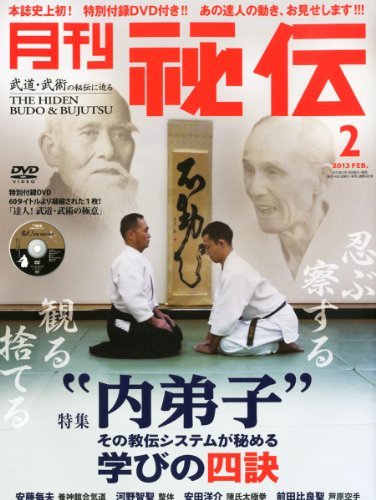
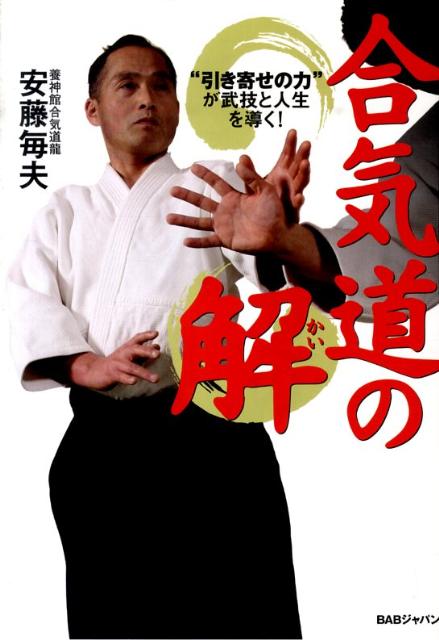
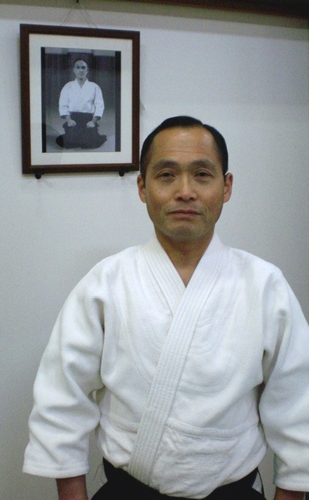
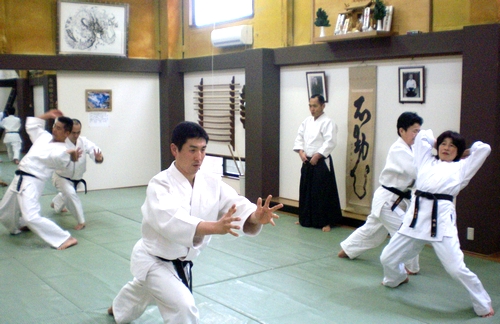

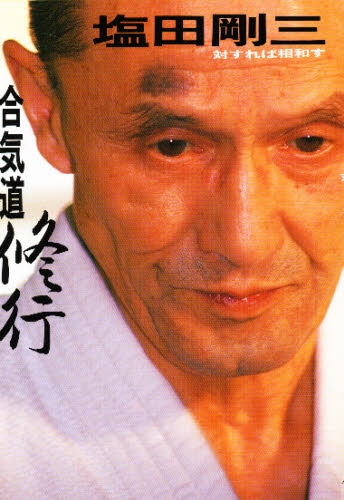
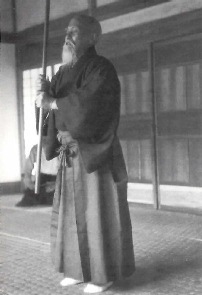
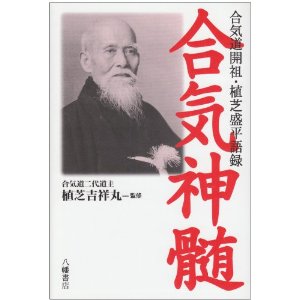
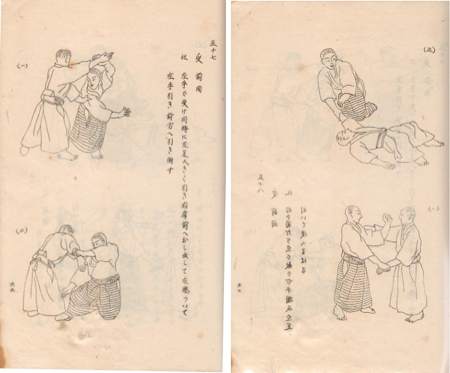
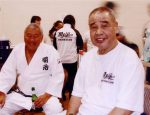
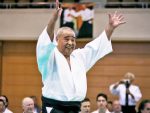


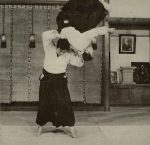
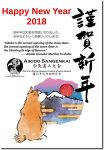
Leave a Reply